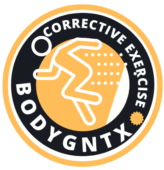The Mindful Plate: Cultivating Mental Wellness Through Food and Science
Navigating the intricate interplay between what we eat and how we feel is more than just a trendy topic; it’s a scientifically supported gateway to optimizing our emotional well-being. The days of simply managing symptoms are fading, replaced by a proactive approach that delves deeper to understand the root causes of chronic conditions like anxiety and depression, and addresses them through diverse, evidence-based strategies. This is where mindful eating takes center stage, offering a powerful tool to nourish both body and mind, particularly when guided by the principles of Human Biomechanics and Alternative Medicine, areas I specialize in as a Dr. Neeraj Mehta, PhD, Fitness Therapist, Researcher, and Educator with over 30 years of experience.
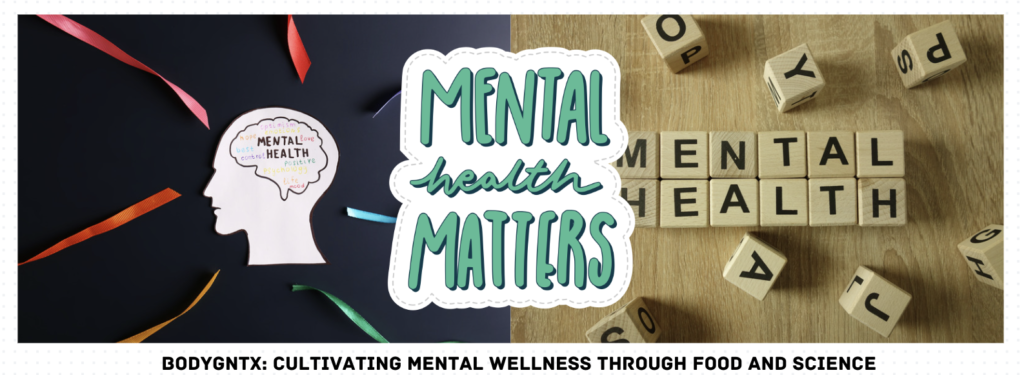
Unraveling the Dietary Impact on Anxiety:
Understanding how food influences our emotions is key to harnessing its power for managing anxiety. Studies published in the Journal of Affective Disorders, for instance, reveal that specific nutrients like zinc, magnesium, and omega-3 fatty acids play a crucial role in regulating neurotransmitters, like serotonin and GABA, crucial for mood control and anxiety reduction. Deficiencies in these nutrients, as noted by the National Institutes of Health, can exacerbate anxiety symptoms. Conversely, research in the National Journal of Neuroscience highlights the link between diets rich in processed foods and refined sugars, common staples in the Western diet, and increased inflammation, a known risk factor for anxiety, as reported by the American Psychological Association.
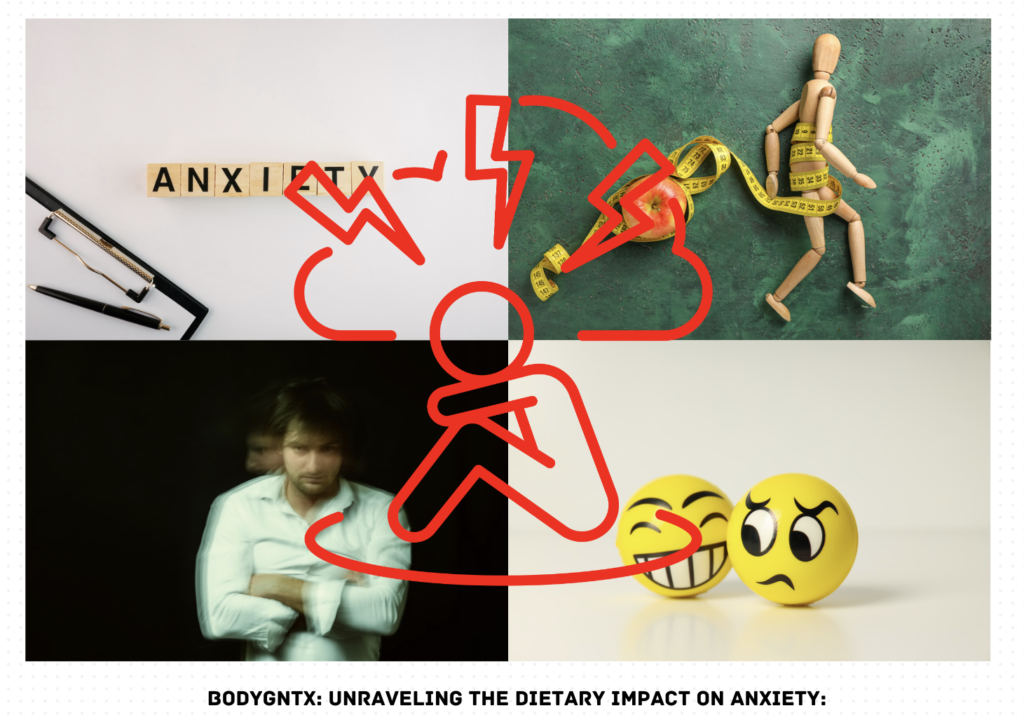
The Gut-Brain Connection: A Microbial Orchestra of Calmness:
The gut-brain axis, the bidirectional communication between gut microbiota and the brain, is no longer a fringe concept. Studies published in Nature Reviews Gastroenterology & Hepatology underscore the significance of a healthy gut microbiome, nurtured by fiber-rich foods and fermented delights like yogurt and kimchi, in regulating neurotransmitters and potentially reducing anxiety. Research in the European Journal of Psychiatry confirms this connection, noting that individuals with anxiety disorders often exhibit imbalances in their gut microbiota. This emerging field adds a compelling layer to understanding how mindful eating can positively impact mental health.
Dr. Neeraj Mehta’s Perspective on Nutrition and the Gut-Brain Connection
As an advocate for holistic wellness, I delve into the multifaceted connection between Ikigai, gut-brain interactions, and brain health:
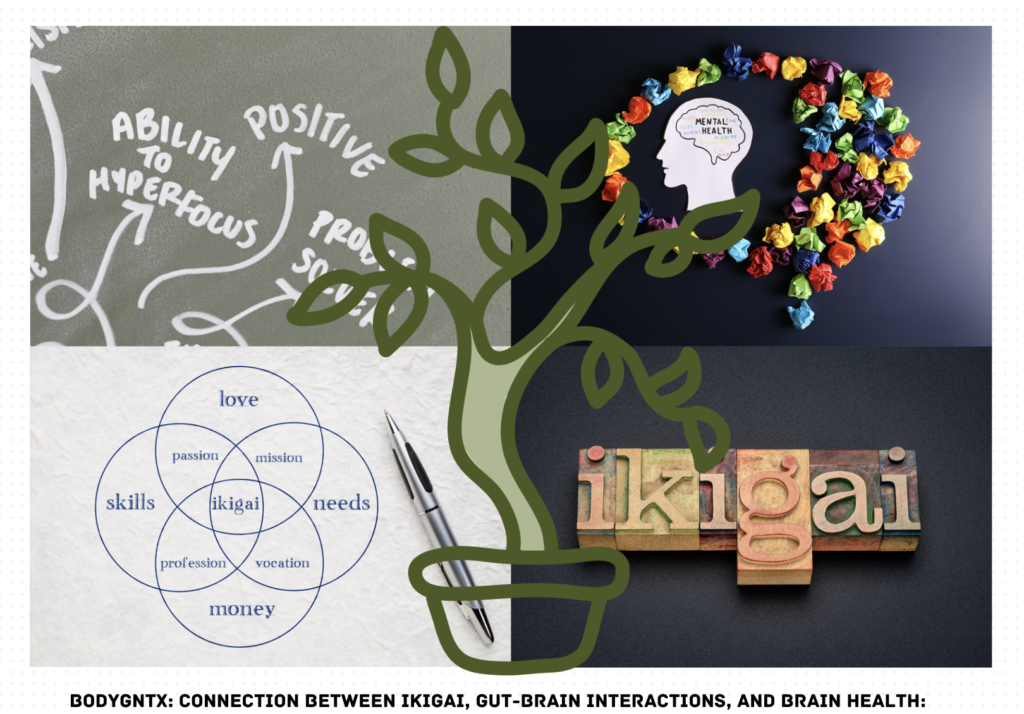
Ikigai’s Influence on Neurotransmitter Production: Ikigai, often described as one’s ‘reason for being,’ not only nurtures emotional balance but also influences neurotransmitter activity. Serotonin, the renowned ‘happy hormone,’ primarily originates from the gut. Aligning with one’s Ikigai can promote a balanced serotonin production, fostering improved mood regulation and emotional stability.
Microbiota Composition and Ikigai: The pursuit of Ikigai resonates deeply with the intricate dance of the gut microbiota. Certain gut bacteria, influenced by Ikigai-driven behaviors and choices, contribute to synthesizing vital neurotransmitters such as GABA and serotonin. Cultivating one’s Ikigai may positively impact gut microbial composition, potentially enhancing stress management and mood regulation.
Inflammation, Ikigai, and Gut Health: Chronic gut inflammation can disrupt the harmony of Ikigai. Signals from inflamed gut linings affect the brain via the vagus nerve, potentially triggering stress responses that challenge our Ikigai-driven purpose. Nurturing a healthy gut ecosystem aligned with Ikigai supports reduced inflammation, contributing to a clearer mindset conducive to pursuing one’s purpose.
Immune System Activation and Ikigai: The pursuit of Ikigai intertwines with immune system harmony. By fostering a well-balanced gut microbiome, influenced by Ikigai-driven lifestyle choices, we promote immune balance. This shields against an inflammatory response that might hinder the pursuit of our purpose, fostering a conducive environment for our Ikigai-driven goals.
Hormonal Pathways and Ikigai: Ikigai’s positive impact on hormone regulation can’t be overlooked. The gut microbiota, influenced by the pursuit of Ikigai, may modulate stress hormones like cortisol, potentially reducing anxiety levels. Nurturing one’s Ikigai aligns with a more balanced hormonal environment, fostering an atmosphere conducive to pursuing and realizing one’s purpose.
Holistic Strategies for a Harmonious Mind and Body:
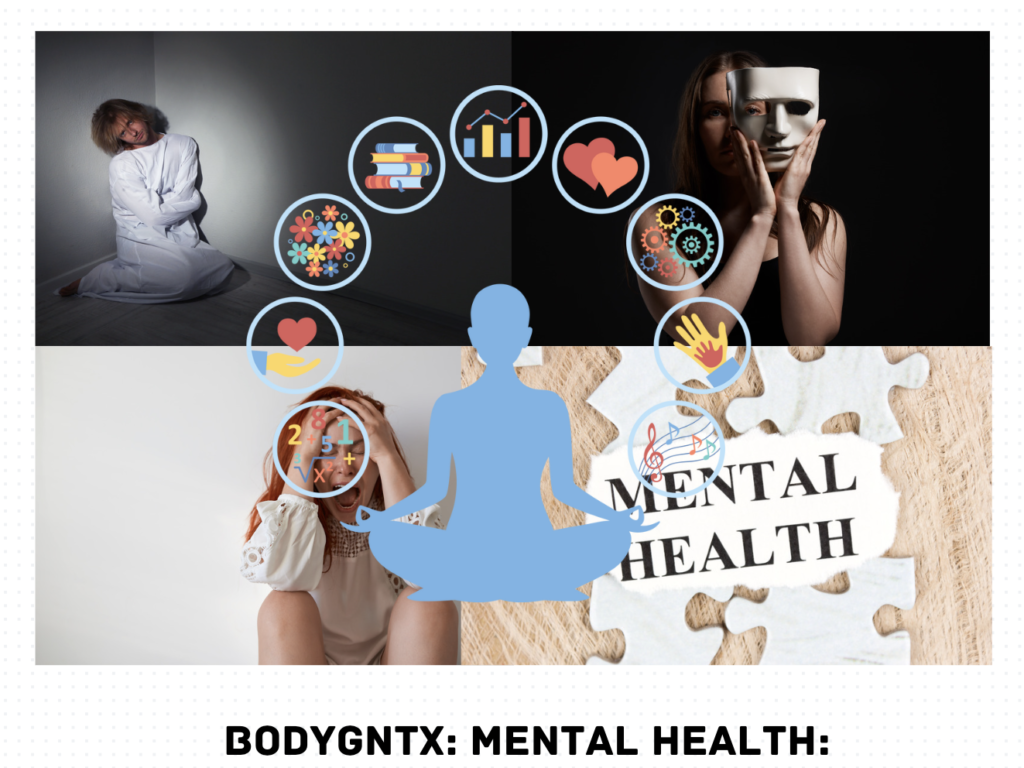
While evidence-based dietary interventions like the Mediterranean or DASH diet, rich in fruits, vegetables, whole grains, and healthy fats, have demonstrated significant reductions in anxiety symptoms, as documented in the Journal of Psychiatric Research, they are only one piece of the puzzle. Combining these nutritional strategies with holistic wellness practices like mindfulness, meditation, and regular exercise, as recommended by the Centers for Disease Control and Prevention, creates a synergistic approach for fostering true mental well-being.
Expert Advice:
As an expert in biomechanics and alternative medicine, I advocate a dietary approach rooted in holistic wellness. Emphasizing the consumption of Sattvik foods over Tamsik foods, focusing on hydration, and eliminating sugary or processed junk foods are pivotal steps toward enhancing overall wellness and mitigating anxiety. Incorporating fresh fruits and vegetables into one’s daily regimen, while reducing processed foods, not only nourishes the body but also positively impacts mental well-being. Sattvik foods, known for their purity and balanced nature, promote tranquility and mental clarity. This dietary shift not only ensures adequate nutrition but also supports the body’s natural state of balance, fostering improved mental health and reduced anxiety levels.
Here are some Sattvik meal suggestions:
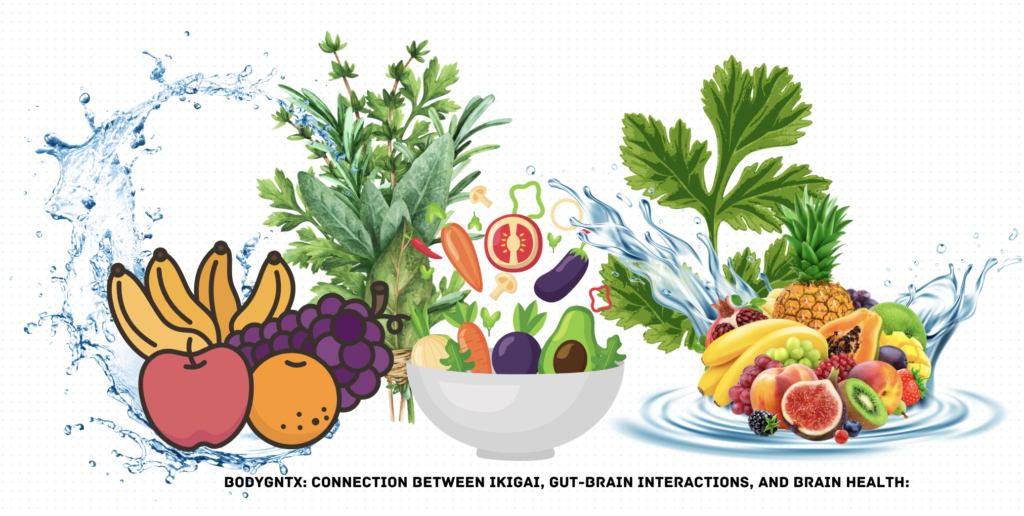
Fresh Produce: Use seasonal, locally sourced fruits and vegetables. Leafy greens, carrots, bell peppers, berries, apples, pears, and oranges are good choices. Vitamins, antioxidants, and fibre abound.
Whole Grains: Choose brown rice, quinoa, millet, barley, and oats. Nutrient-dense grains provide continuous energy without stomach discomfort.
Legumes and Pulses: Lentils, chickpeas, mung beans, and other legumes provide protein and fibre. They give nutrients and aid digestion.
Eat almonds, walnuts, pumpkin seeds, sunflower seeds, and chia seeds. These provide healthful fats, proteins, and vitamins for overall wellness.
For people who tolerate dairy, moderate amounts of fresh, organic milk, yoghurt, and ghee can be included. They have calcium, probiotics, and healthy fats.
Sattvik diet foods to avoid:
Avoid processed and refined foods like white flour, sugary snacks, packaged foods, and artificially flavoured items.
Spicy and Heavy Foods: Spicy, greasy, and overly seasoned foods can upset the digestive system and create pain.
Sattvik diets exclude non-vegetarian foods, but if eaten, choose fresh, lean, and organic fowl or fish in small amounts.
Stimulants: Caffeine and alcohol can disrupt the body’s homeostasis and cause anxiety.
Sattvik diets emphasise both food and preparation. Mindfully eating in a tranquil place and being appreciative for food are also important parts of a Sattvik diet for mental and emotional health.
Dr. Neeraj Mehta’s Holistic Toolbox for Anxiety Management
Firsty check these case studies:
Case Study 1: Sunita’s Metamorphosis via Mindfulness
Sunita, a 32-year-old marketing professional, struggled with stress caused by her employment, acknowledging, “The pressures of work made me feel anxious and unfocused.” In search of equilibrium, Sunita sought counsel from Dr. Neeraj Mehta, who tailored her wellness regimen. Dr. Mehta recommended including yoga and mindfulness practices into her morning routine. Sunita conscientiously engaged in regular practice, integrating breathing techniques that augmented her meditation sessions. “Currently, I commence my day by engaging in yoga and practicing mindfulness.” “It establishes a favourable atmosphere,” said Sunita.
Sunita observed a substantial decrease in her anxiety levels, as evidenced by a 40% reduction in her self-reported anxiety ratings. “The approach of Dr. Mehta had a profound effect on my mental well-being, and I am extremely grateful for the transformation it brought to my life,” she pondered.
Case Study 2: Anil’s Journey to Wellness Through Mindful Movement
Anil, a 40-year-old IT consultant, grappled with excessive work-related stress, impeding his ability to concentrate. In search of a resolution, Anil sought advice from Dr. Neeraj Mehta, who proposed integrating mindfulness into his daily regimen. Anil adopted a practice of incorporating walking meditations into his daily commute, demonstrating a conscious and deliberate approach to mobility.
Upon adopting this novel approach, Anil witnessed a significant surge of 25% in his daily productivity. “The advice from Dr. Mehta had a profound impact on Anil, fundamentally changing his perspective on life,” Anil expressed, emphasising the transforming influence of practicing mindful movement on his ability to combine his job and personal life.
Case Study 3: James’s Sleep Improvement Using Holistic Techniques
James, a 28-year-old postgraduate student, endured insomnia as a result of academic pressure. In search of relief, he sought the assistance of Dr. Neeraj Mehta, who emphasised the importance of maintaining good sleep habits and utilising aromatherapy. James utilised lavender-infused relaxation techniques before to going to sleep, which helped improve his sleep pattern.
Upon implementing these methods, James observed a significant augmentation in his sleep duration, with an average of one more hour of uninterrupted sleep per night. James expressed gratitude for the restorative impact on his general well-being that resulted from Dr. Mehta’s assistance, which helped him regain his sleep.
Dr. Neeraj Mehta, a distinguished expert in biomechanics and alternative medicine, presents a comprehensive approach towards managing anxiety through a holistic toolbox:
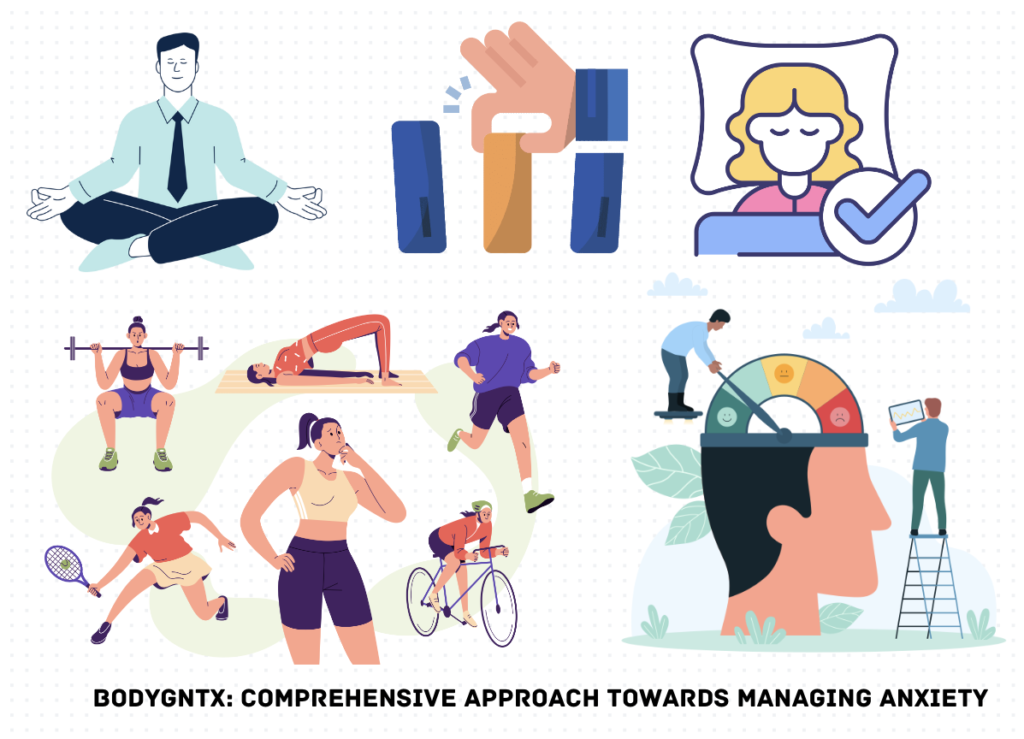
- Mind-Body Techniques: Dr. Mehta advocates for mind-body practices such as yoga, deep breathing, and meditation. These techniques not only promote relaxation but also positively impact gut health, fostering a balanced gut-brain axis crucial for anxiety management.
- Nutritional Interventions: Dr. Mehta emphasizes evidence-based nutritional strategies, advocating for diets rich in essential nutrients, particularly those influencing gut health and neurotransmitter production. His approach aligns with cultivating a healthy gut microbiome to alleviate anxiety symptoms.
- Physical Activity: Regular exercise stands as a cornerstone in Dr. Mehta’s toolbox for anxiety management. Physical activity not only aids in the release of endorphins but also positively influences gut health, contributing to overall mental well-being.
- Stress Management: Dr. Mehta’s holistic approach includes stress management techniques. He encourages lifestyle modifications to minimize stress triggers, fostering a conducive environment for gut health and mental stability.
- Sleep Hygiene: Understanding the vital role of sleep in mental wellness, Dr. Mehta advocates for good sleep hygiene practices. Quality sleep supports immune function, reduces inflammation, and aids in emotional resilience, all crucial elements in managing anxiety.
Dr. Neeraj Mehta’s holistic toolbox encapsulates a synergistic blend of mind-body practices, nutrition, physical activity, stress management, and quality sleep, offering a comprehensive approach to address anxiety, centered on enhancing gut health and overall mental well-being.
Cultivating a Mindful Plate for a Flourishing Mind:
In conclusion, cultivating a mindful relationship with food, informed by scientific evidence and your expert guidance, Dr. Mehta, unlocks a powerful pathway to alleviating anxiety and enhancing mental health. Remember, this is a journey, not a destination. While individualized counsel from healthcare professionals is always recommended, the road map towards optimal mental well-being is paved with mindful eating, evidence-based nutritional strategies, and a holistic approach to self-care.
External Links for “Mindful Nutrition: Evidence-Based Strategies to Alleviate Anxiety and Enhance Mental Health”
Evidence-Based Links:
- Journal of Affective Disorders: https://pubmed.ncbi.nlm.nih.gov/30714573/ (Study on nutrients and neurotransmitters)
- National Institutes of Health: https://www.ncbi.nlm.nih.gov/pmc/articles/PMC7761127/ (Information on magnesium deficiency and anxiety)
- National Journal of Neuroscience: https://pubmed.ncbi.nlm.nih.gov/12088740/ (Research on processed foods, inflammation, and anxiety)
- Nature Reviews Gastroenterology & Hepatology: https://www.ncbi.nlm.nih.gov/pmc/articles/PMC7738543/ (Significance of gut microbiome and neurotransmitters)
- European Journal of Psychiatry: https://www.ncbi.nlm.nih.gov/pmc/articles/PMC7510518/ (Connection between gut microbiota and anxiety disorders)
- Journal of Psychiatric Research: https://pubmed.ncbi.nlm.nih.gov/37869542/ (Evidence for Mediterranean and DASH diets reducing anxiety)
- Centers for Disease Control and Prevention: https://www.cdc.gov/mentalhealth/index.htm (Recommendations for holistic wellness practices)
Further Education Links:
- Mindful: https://www.mindful.org/ (Mindfulness and meditation resources)
- National Center for Complementary and Integrative Health: https://www.nccih.nih.gov/ (Information on alternative medicine practices)
- American Psychological Association: https://www.apa.org/topics/anxiety (Anxiety disorders information and resources)
- The Anxiety and Depression Association of America: https://adaa.org/ (Support and resources for anxiety and depression)
- Harvard Health Publishing: https://www.health.harvard.edu/blog/anxiety-what-it-is-what-to-do-2018060113955 (Harvard Health articles on managing anxiety)
- Sattvic Diet Resources: https://www.webmd.com/diet/what-is-sattvic-diet (Information on Sattvic principles and recipes)
